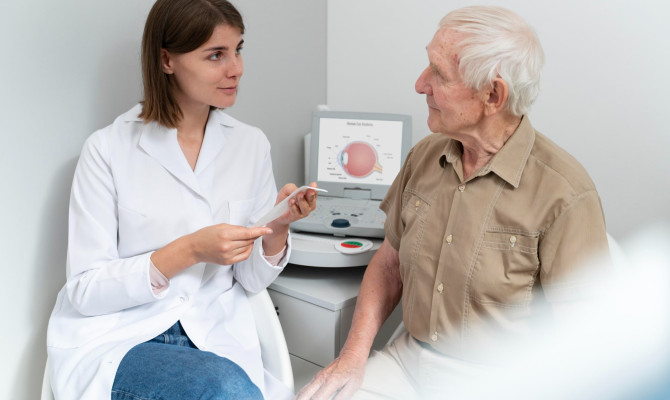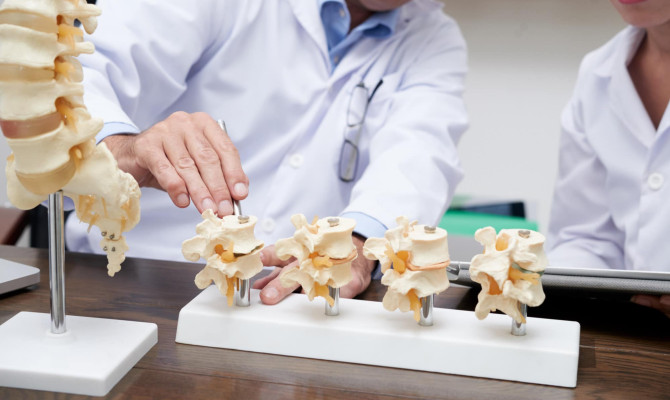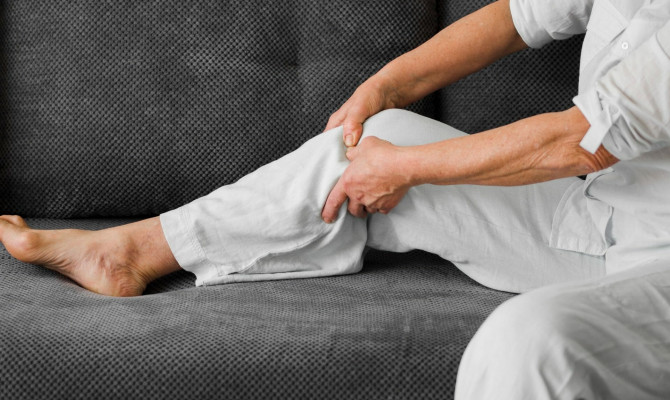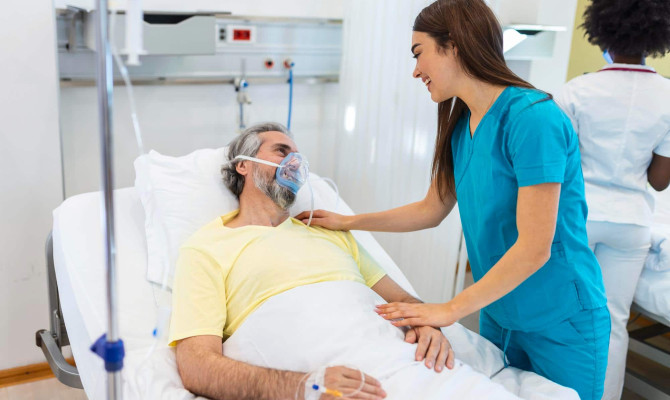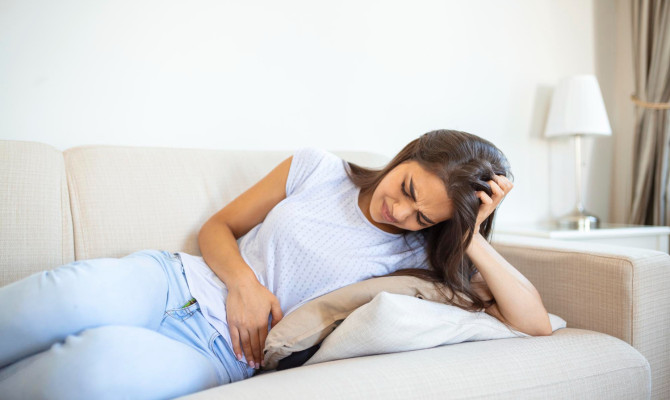Headache After Nap: Causes & Management

- Headache
- 02 Oct 2023
Introduction
Headache After Nap
The occurrence of a headache after a nap can serve as an indicator of various prevalent medical disorders. Individuals have the potential to mitigate the effects of these illnesses by self-initiated modifications. As an illustration, individuals may discover that the implementation of relaxation techniques yields a reduction in both bruxism and anxiety levels. 5 Introduction | Researched based study from Medline Plus In certain instances, home cures may be insufficient.
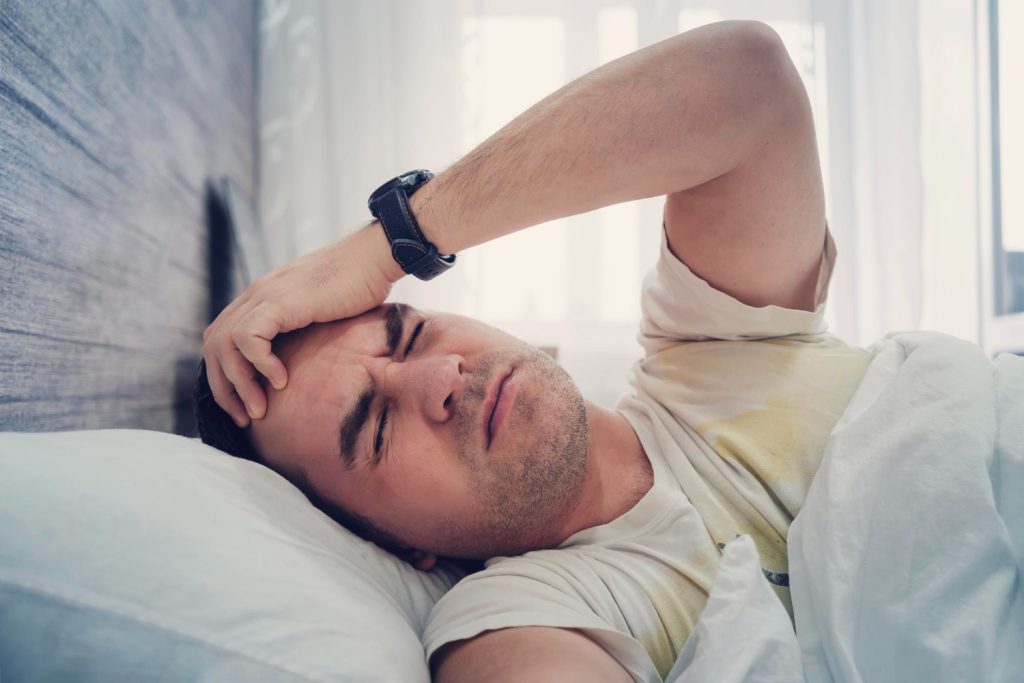
An individual afflicted with bruxism will require the utilization of a mouthguard as a preventive measure to safeguard their dentition and temporomandibular joint against potential harm. Individuals who encounter recurring or intense morning headaches should contemplate seeking consultation with a medical professional. The use of appropriate interventions targeting the root cause of the headaches may contribute to their prevention.
Types
Types of Headaches
There are various classifications of headaches. The next step that should be undertaken is to endeavor to ascertain the specific classification of headache. Furthermore, it is advisable to seek medical consultation anytime one experiences any uncertainties.
Primary Headache
- A primary headache refers to a type of headache that is not caused by an underlying medical condition or disease. 2 Types | Researched based study from American Migraine Foundation
- Primary headaches are a discrete pathological entity that is not attributed to any other underlying medical conditions.
- Migraine, cluster headaches, and tension headaches can be attributed to several factors such as neck muscular soreness, hyperactive nerves, imbalances in brain chemicals, or dilation of blood vessels.
- Moreover, it is worth noting that primary headaches have a hereditary component, as they can be observed to occur within familial contexts.
Secondary Headache
- A secondary headache is a type of headache that occurs as a result of an underlying medical condition or external factor.
- Unlike primary headaches, secondary headaches occur when the activation of pain-sensitive nerves in the head is triggered by an underlying medical condition.
- They can arise as a consequence of influenza, otitis media, sinusitis, or any other medical condition. 2 Types | Researched based study from American Migraine Foundation
Causes
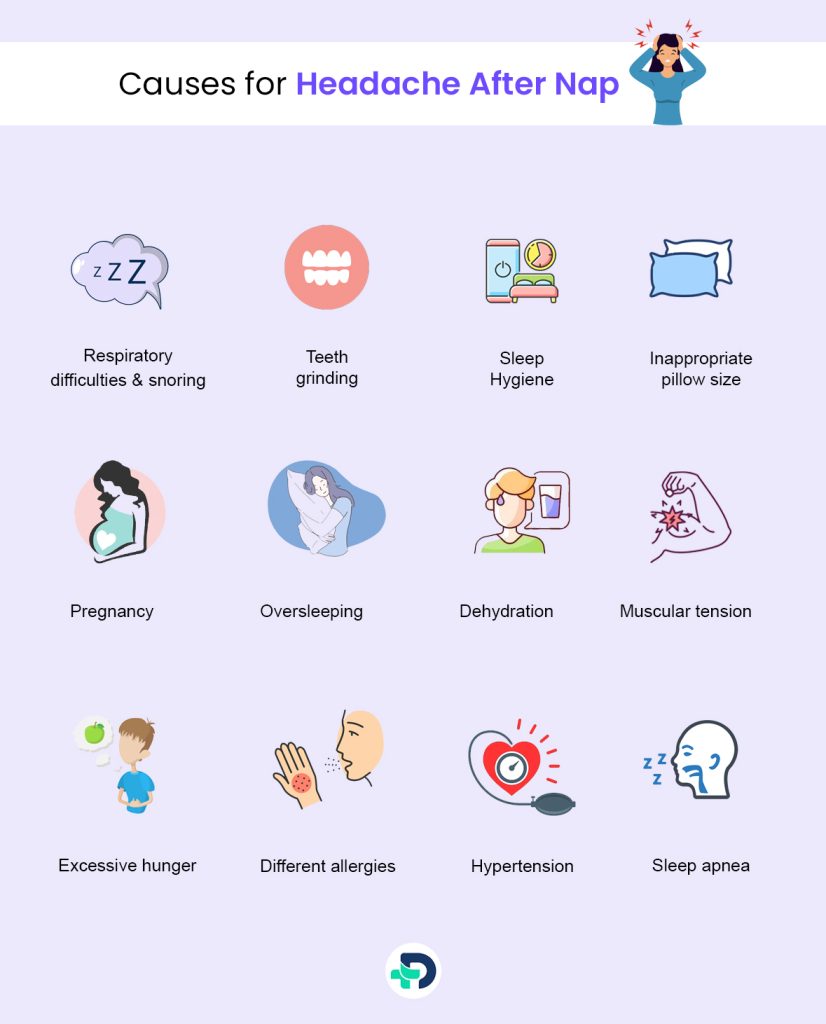
Causes for Headache After Nap
There exist several factors that may contribute to the occurrence of a headache following a period of sleep:
- Respiratory difficulties and snoring
- Teeth grinding
- Pregnancy
- Sleep Hygiene
- Inappropriate pillow size
- Oversleeping
- Dehydration
- Excessive use of Coffee
- Muscular tension
- Excessive hunger
- Different allergies
- Hypertension
- Sleep apnea
- Alcohol and drugs
- Psychological conditions
Respiratory difficulties and nocturnal snoring
The presence of snoring may serve as an indication of respiratory difficulties. 2 Factors | Researched based study from American Migraine Foundation Inadequate respiration not only disrupts sleep patterns but also heightens the likelihood of experiencing post-awakening headaches. In addition to its common association with snoring, obstructive sleep apnea may manifest with the following symptoms:
- Episodes of interrupted breathing during sleep, commonly known as pauses in breathing during sleep, are a prevalent sleep disorder.
- Nocturnal arousal
- Nocturnal hyperhidrosis
- Daytime somnolence resulting from insufficient sleep.
Bruxism, often known as teeth-grinding
- Bruxism refers to the involuntary act of grinding or clenching one’s teeth, typically occurring without conscious awareness.
- Engaging in this activity, particularly during periods of sleep, has the potential to induce headaches upon awakening. 5 Causes | Researched based study from Medline Plus Furthermore, it is worth noting that there is a potential correlation between this phenomenon and the occurrence of snoring and sleep apnea.
- When the act of clenching is of notable importance, it might result in muscular tightness throughout the day and the occurrence of a headache upon awakening.
Pregnancy – Headache after nap pregnancy
Pregnancy can induce weariness, resulting in an increased frequency of napping; nonetheless, it is possible to experience occasional headaches upon awakening. This phenomenon may arise from a multitude of sources, which may include 2 Factors | Researched based study from American Migraine Foundation :
- Dehydration
- Hypoglycemia, also referred to as low blood sugar levels, is a medical condition characterized by abnormally low glucose concentrations in the bloodstream.
- The phenomenon of congestion refers to the condition in which there is an excessive accumulation or overcrowding
- Hormonal changes
Sleep hygiene
- The concept of sleep hygiene refers to a set of practices and habits that promote healthy and restful sleep. The concept of sleep hygiene is unrelated to personal cleanliness.
- In contrast, this pertains to the behavioral patterns associated with maintaining a state of optimal sleep hygiene. The presence of inadequate sleep hygiene may contribute to the occurrence of post-nap headaches.
Inappropriate pillow size
- If an individual utilizes an inappropriate pillow that does not align with their specific requirements, it may cause their head and neck to assume uncomfortable positions. 4 Causes | Researched based study from National Institutes of Health
- Consequently, this can lead to the development of strained muscles and tension, ultimately resulting in the manifestation of a headache.
Oversleeping – Headache after sleeping too much
- Excessive napping can also contribute to the occurrence of headaches, as oversleeping is recognized as a potential risk factor for headache development.
- It is crucial to strike a balance that satisfies your individual sleep requirements.
Dehydration
- Dehydration is widely recognized as the predominant risk factor associated with the occurrence of post-nap headaches.
- In order to mitigate this concern, it is imperative to maintain proper hydration by regularly consuming water throughout the course of the day, as inadequate fluid intake can potentially exacerbate a range of health conditions.3 Causes | Researched based study from National Institutes of Health
- Common signs of dehydration encompass symptoms such as parched oral cavity and lips, urine of a darker hue, dizziness, and alterations in emotional state.
Excessive use of coffee
- The consumption of a flavorful cup of coffee in the early hours of the day has the potential to provide an immediate surge of vitality.
- Nevertheless, excessive consumption of coffee and other beverages containing caffeine can result in undesirable consequences, including the occurrence of headaches subsequent to a period of sleep. 3 Causes | Researched based study from National Institutes of Health
- Migraines may potentially arise as a consequence of excessive use of caffeine and inadequate hydration.
- It is advisable to derive pleasure from consuming coffee, while simultaneously ensuring adequate hydration by consuming water, in order to maintain optimal fluid equilibrium inside the body.
- The diuretic effects of coffee might lead to heightened urinary frequency and the potential for dehydration if enough water intake is not maintained.
Muscular tension
- A potential etiology for a headache that exacerbates following a period of sleep may be attributed to a muscular strain.
- Tension headaches may arise due to discomfort originating from the musculature of the neck, shoulders, or jaw, which subsequently extends to the cranial region.
- Muscle tension-induced headaches can arise as a result of extended durations of uninterrupted driving, prolonged sedentary desk labor, or repetitive strain injuries.
- In order to mitigate the discomfort associated with strained muscles, it is crucial to integrate relaxation techniques, such as deep breathing exercises and moderate neck and shoulder stretches, into one’s daily regimen, particularly during extended periods of work or driving.
Excessive hunger
- The absence of sustenance leads to a decrease in blood glucose levels, potentially leading to the occurrence of headaches during the midday period in the event of breakfast omission.
- It has been observed that those who engage in a nap without consuming any food beforehand may experience the onset of a headache upon awakening.
- Moreover, the act of forgoing lunch might further intensify this problem, resulting in even more prominent headaches towards the middle of the day. 2 Factors | Researched based study from American Migraine Foundation
- If one experiences hunger, it is advisable to consume a little portion of a banana and a glass of water prior to retiring for the night.
- If the headache continues to linger despite resolving probable triggers related to hunger and if the individual has dizziness, it is imperative to investigate alternative potential causes and undertake suitable measures.
Different allergies
- There exist multiple factors contributing to the occurrence of headaches following prolonged sleep, with allergens emerging as a prominent causative agent.
- The presence of recurrent sneezing, ocular discomfort or irritation, weariness, and a pervasive sense of malaise could potentially be attributed to an allergic response.
- It is imperative to consult with a specialist in the field of medicine when encountering medical conditions such as allergies. It is advisable to seek professional medical advice from a healthcare provider regarding the potential benefits of antihistamines in addressing your concerns.
Hypertension
- Hypertension, sometimes referred to as high blood pressure, is a medical condition characterized by elevated levels of force exerted by blood on the walls of arteries.
- In the event that an individual’s blood pressure measurements reach 180/120 mm Hg and they afterward encounter a headache subsequent to a period of rest, it is advisable to promptly seek medical attention from a healthcare professional.
- In cases where an individual’s blood pressure is not significantly elevated, it is generally unlikely to manifest as a headache. It is advisable to promptly seek medical attention in the event of experiencing symptoms such as elevated blood pressure, dizziness, or the presence of skin discoloration.
Sleep apnea
- Sleep apnea is a sleep disorder characterized by repeated interruptions in breathing during sleep. 1 Causes | Researched based study from National Institutes of Health
- The association between sleep apnea and post-nap headaches can be ascribed to the disturbance of sleep patterns induced by sleep apnea.
- Individuals diagnosed with sleep apnea and those who have not received treatment for their condition may exhibit increased vulnerability to having headaches following daytime naps as a result of the diminished quality of their sleep.
- The implementation of appropriate treatment for sleep apnea has the potential to greatly improve the quality of sleep and decrease daytime symptoms, including headaches.
- It is imperative to consult a healthcare expert for evaluation and appropriate management if an individual or someone they are acquainted with is experiencing sleep apnea or associated symptoms. 1 Causes | Researched based study from National Institutes of Health
Alcohol and drugs
- The consumption of alcohol has the potential to lead to the occurrence of a hangover, characterized by the presence of a headache on the subsequent day.
- Individuals with a hangover may commonly exhibit symptoms such as nausea, thirst, and fatigue. Additionally, individuals may encounter gastrointestinal discomfort, perspiration, irritation, or photophobia.
- Morning headaches can also be caused by some drugs. For instance, in cases where an individual excessively utilizes non-prescription pain drugs, such as ibuprofen, they may encounter a medication overuse headache.
Psychological conditions
- Both depression and anxiety have the potential to induce bodily manifestations, such as headaches, in individuals.
Management
How to Get Rid of Headache After Nap?
Therapeutic interventions, such as therapy targeting anxiety, or the use of a mouth guard, are potential treatment options for addressing bruxism, a condition characterized by teeth grinding. Sleep apnea, a medical condition characterized by interrupted breathing during sleep, often necessitates modifications to one’s lifestyle or the utilization of a respiratory assistance device during nocturnal hours. 5 Management | Researched based study from Medline Plus
Home remedies are traditional or folk treatments that are used to treat common ailments or minor health issues. Several home remedies have been found to be effective in alleviating headaches that occur when awakening from a nap.
Engaging in the utilization of a novel pillow and adhering to proper sleep hygiene practices have the potential to enhance the quality of sleep, hence perhaps mitigating the likelihood of experiencing headaches. 4 Management | Researched based study from National Institutes of Health
The practice of good sleep hygiene encompasses:
- Decreasing one’s intake of caffeine
- Engaging in regular physical exercise on a daily basis.
- The restriction of daytime napping.
- Engaging in relaxation practices prior to sleep
- Creating an effective nocturnal regimen for relaxation
In the event that basic therapies prove ineffective or if there is suspicion of underlying conditions such as sleep apnea or bruxism, it is advisable to consult a medical professional. The medical professionals will conduct an examination to assess the necessity of referring you to a sleep specialist.
If pregnant individuals are encountering headaches following naps, it is advisable to maintain proper hydration and adhere to regular meal patterns, as these measures may prove beneficial. Fluctuations in blood sugar levels have the potential to result in symptoms such as headaches and fatigue. It is advisable to take breaks and spend time outdoors to provide adequate ventilation when one is confined indoors for extended periods. 6 Management | Researched based study from Medline Plus It is advisable to engage in a discussion with your obstetrician in the event of concerns or if the attempted measures prove ineffective.
Prevention
Strategies for Preventing After Nap Headaches
In this section, we will examine a few uncomplicated techniques that can assist in mitigating the occurrence of a pulsating headache when one’s schedule does not allow for a peaceful midday repose.
Modify your sleeping posture
- It is advisable to adopt a side or back sleeping position instead of napping face down on the bed, as the discomfort experienced upon awakening is primarily attributed to the body’s positioning during sleep. 6 Prevention| Researched based study from Medline Plus
Sleep in a cozy location
- Instead of assuming a slouched posture against a desk, it is advisable to adopt a neutral attitude conducive to rest, preferably in a location where one may recline comfortably.
- Acquire a high-quality pillow in order to mitigate the potential strain on the neck and upper back, hence promoting the attainment of restful and rejuvenating sleep. 4 Prevention | Researched based study from National Institutes of Health
Acquire the skills necessary to effectively cope with and regulate stress
- Individuals who experience persistent anxiety may find it difficult to engage in napping. One may experience heightened tension following a nap, rather than a sense of increased relaxation.
- In order to optimize the quality of sleep and enhance the efficacy of napping, it is advisable to integrate relaxing methods into one’s pre-nap routine. 6 Prevention| Researched based study from Medline Plus
- These may encompass activities such as engaging in yoga, practicing meditation, or engaging in mild physical exercise before to retiring for the night.
- These strategies can potentially mitigate negative emotions and foster a more favorable atmosphere for achieving restful periods of sleep.
Avoid excessive food consumption prior to taking a nap
- Many individuals employ short periods of sleep, sometimes referred to as quick naps, as a means of alleviating stress. This practice is often accompanied by engaging in stress-eating behaviors.
- In order to promote bodily relaxation and mitigate excessive bloating upon awakening, it is advisable to refrain from consuming substantial quantities of food just prior to bedtime.
Exercise prudence when using caffeine
- In order to optimize the effects of consuming coffee prior to a nap, it is imperative to promptly engage in a brief period of rest following the completion of coffee consumption.
- This phenomenon occurs due to the onset of caffeine’s effects, which normally manifest approximately 30 minutes following ingestion. 6 Prevention| Researched based study from Medline Plus
- By engaging in a brief 10–20-minute period of sleep, individuals can experience an improved state of rejuvenation upon awakening, leading to an enhanced sensation of overall refreshment.
Maintain proper hydration levels
- It is imperative to maintain adequate hydration by consuming ample amounts of water, as inadequate hydration is a prevalent concern.
- It is advisable to consume a glass of water prior to sleep, as inadequate hydration may result in awakening with a headache.
Establish an alarm system and adhere to its schedule
- Please ensure that you set an alarm and promptly rise upon its activation in order to fulfill your obligations.
- Engaging the snooze function on an alarm clock would merely lead to prolonged periods of drowsiness and the exacerbation of headaches.
- The act of engaging in brief periods of sleep, commonly referred to as napping, has been found to have a positive impact on one’s state of being, promoting a sense of revitalization and renewed energy. 6 Prevention| Researched based study from Medline Plus
- It is important to bear in mind that the proper practice of sleeping can effectively prevent post-nap headaches.
Utilize a sleep monitoring application
- To enhance the quality of your slumber and achieve a rejuvenated state upon awakening, it is advisable to employ a sleep-tracking application.
Do not ignore symptoms associated with sleep disorders
- Promptly address any observed signs and symptoms that may indicate the presence of sleep disorders, as disregarding them might have adverse consequences.
- Adopt proactive measures, such as getting guidance from a healthcare practitioner, in order to effectively manage any underlying sleep issues.6 Prevention| Researched based study from Medline Plus
Avoid alcohol
- It is advisable to exercise caution with alcohol use in the evenings, particularly if one’s headache diary indicates that alcohol serves as a trigger for headaches.
A balanced diet
- A well-balanced diet and adequate hydration are essential factors for maintaining good health.
- It is important to ensure adequate hydration by consuming an appropriate amount of water throughout the day, including the consumption of a substantial quantity of water upon waking in the morning.
- Maintaining a balanced diet has been found to contribute to the prevention of headaches.
Takeaway
Headache After Nap – Consult Doctor
It is advisable to consult a medical professional even in the absence of suspected underlying pathology causing headaches, particularly when no relief is experienced while attempting lifestyle modifications. A healthcare provider has the ability to offer alternative treatment choices, in addition to doing an assessment to eliminate potential triggers such as medication, food, or muscular strain. If a medical professional determines that an individual’s headaches may be associated with conditions such as insomnia, sleep apnea, or bruxism, additional therapy may be necessary in order to identify the underlying cause. If an individual experiences morning headaches on three or more occasions per week, it is advisable to schedule a consultation in order to determine appropriate subsequent actions.
Any feedback on this article?
 This Articles content was accurate
This Articles content was accurate Very Informative Article
Very Informative Article I have a question or a comment
I have a question or a comment
 This article contains inaccurate content
This article contains inaccurate content This article was not helpful
This article was not helpful I have a question or a comment
I have a question or a comment
We appreciate your helpful feedback!
Checkout our social pages
References
-
National Institutes of Health
Causes
-
American Migraine Foundation
Types | Factors
-
National Institutes of Health
Causes
-
National Institutes of Health
Causes | Management | Prevention
-
Medline Plus
Introduction | Causes | Management
-
Medline Plus
Management | Prevention












